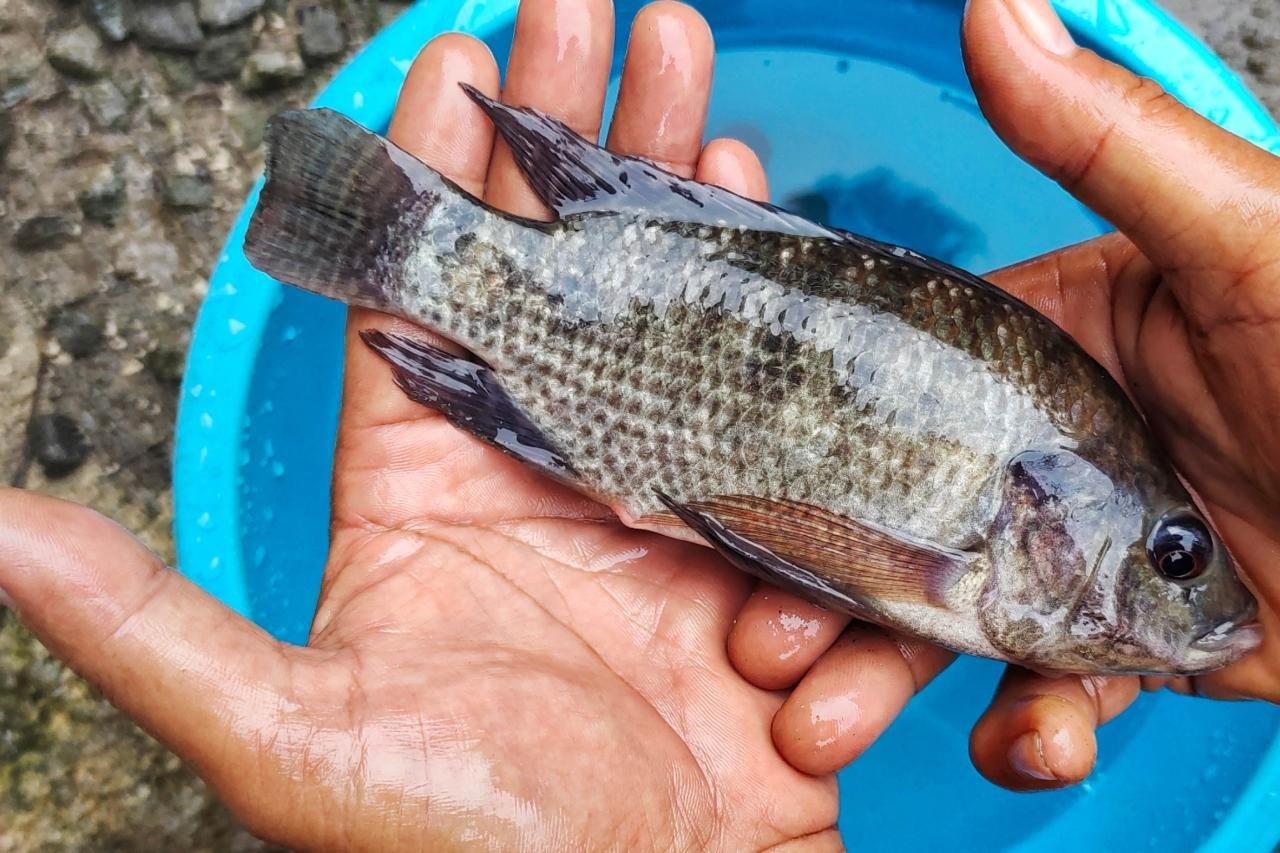Recent research from the Earlham Institute identified candidate genes that might help fish endure warmer and saltier water, possibly providing a vital resource to drive breeding programs in freshwater aquaculture.

Image Credit: Earlham Institute
As water quality and availability are lowered by elevated global temperatures, these observations could be used to breed more resilient fish and protect an important source of food for millions around the world.
The Nile tilapia, Oreochromis niloticus, is a popular freshwater aquaculture species that provide essential nutrients and protein. Their use in aquaculture has surged, owing largely to their adaptability to various water conditions and production systems.
However, rising global temperatures have limited freshwater resources. Fish farms—and the people who rely on them for food—badly need strains that survive despite rising salinity and water temperature.
To address this issue, investigators from the Earlham Institute, the University of Stirling, and the University of East Anglia examined the tilapia genome to identify favorable modifications in the genome that are responsible for enhanced tolerance to changing water conditions.
They looked at tissue from fish gills, an important osmoregulatory organ, and obtained DNA and RNA sequence data to evaluate activity, regulation, and function of several genes.
The researchers then discovered genetic variations in gene regulatory regions in Nile tilapia and 27 other tilapia species.
Their speculation was that distinctions between Nile tilapia, a freshwater species, and species acclimated to saline waters arose to control genes involved in adapting to diverse water environments.
The researchers streamlined a genome sequencing approach that exposes the activity of possible transcription factor binding sites as well as genetic switches that turn expression on and off.
Their method discovered regions of the genome that researchers believe are responsible for controlling the activation of particular osmoregulatory genes, which regulate gill function and how the fish responds to changing water conditions.
They discovered a number of genes associated with characteristics that let tilapia withstand saltier water and adapt to freshwater. These included genes involved in metabolism and general housekeeping functions that are in charge of responding to environmental changes to maintain balance.
Breeders are in desperate need of genomic resources to inform their breeding programs so traits offering greater resilience can be quickly and accurately selected for. By characterizing the genes responsible for these desirable traits, we can now share these new resources with freshwater fish farms to help guide selective breeding programs.”
Dr. Tarang Mehta, Study Author and Postdoctoral Research Scientist, Earlham Institute
Dr Wilfried Haerty, study author and Group Leader at the Earlham Institute adds, “We identified regions of the Nile tilapia genome we can target to help breed fish with higher tolerance to salt—something that has sadly become increasingly important as our freshwater resources are degraded. The next steps are to use similar genomic approaches to find genes and their regulators associated with other traits of interest for aquaculture, like growth and disease resistance.”
Source:
Journal reference:
Mehta, T. K., et al. (2023). Chromatin accessibility in gill tissue identifies candidate genes and loci associated with aquaculture relevant traits in tilapia. Genomics. doi.org/10.1016/j.ygeno.2023.110633.